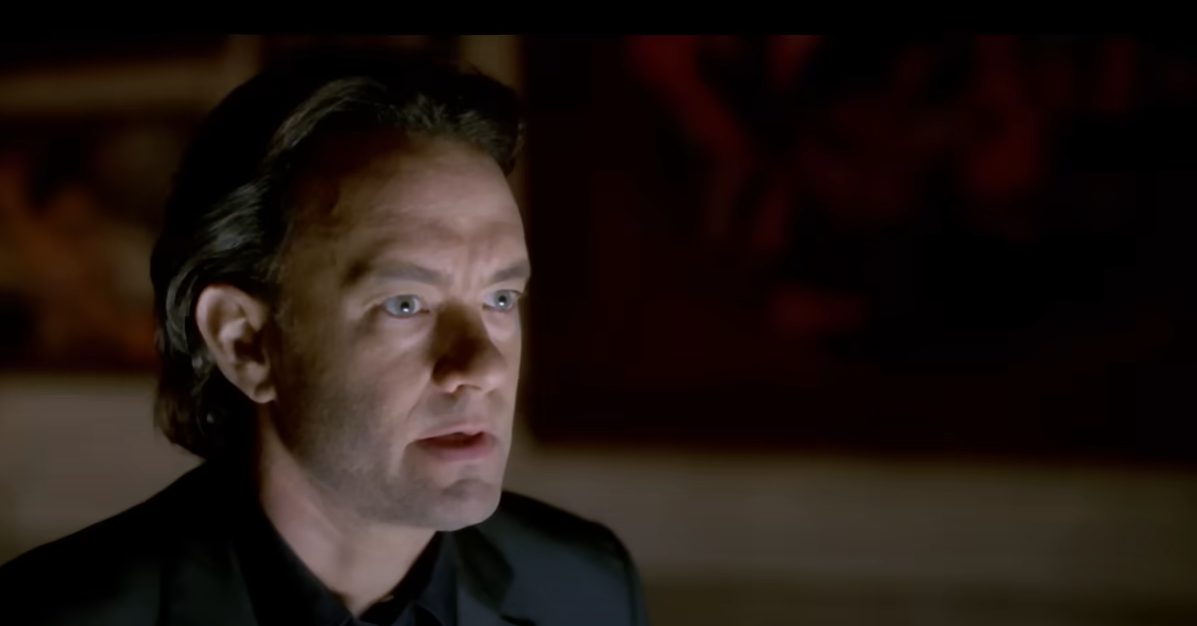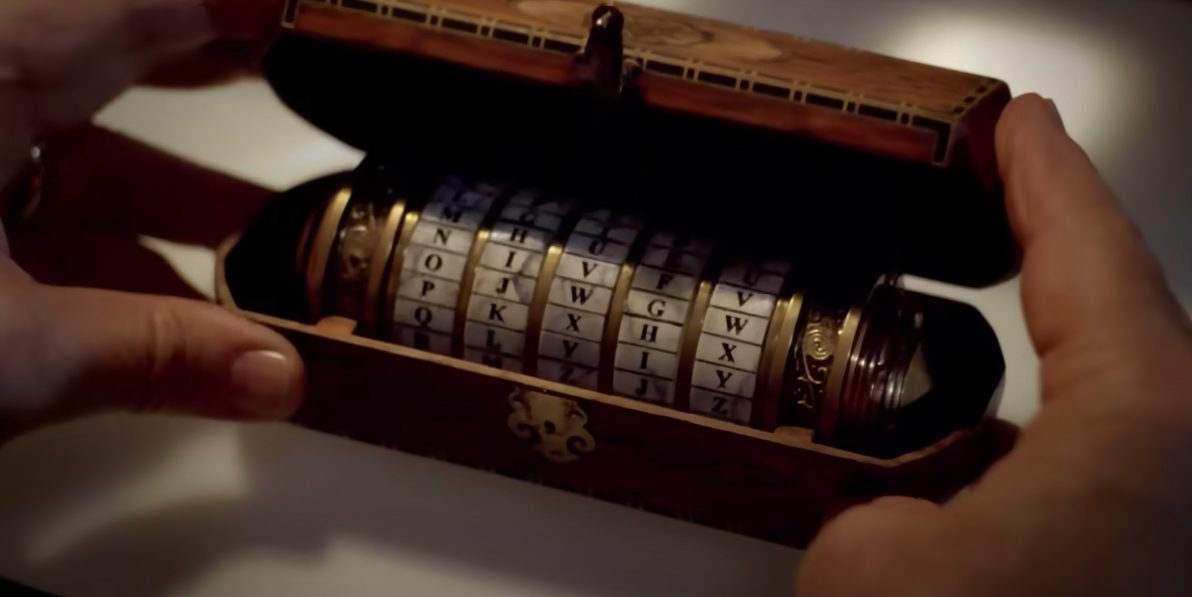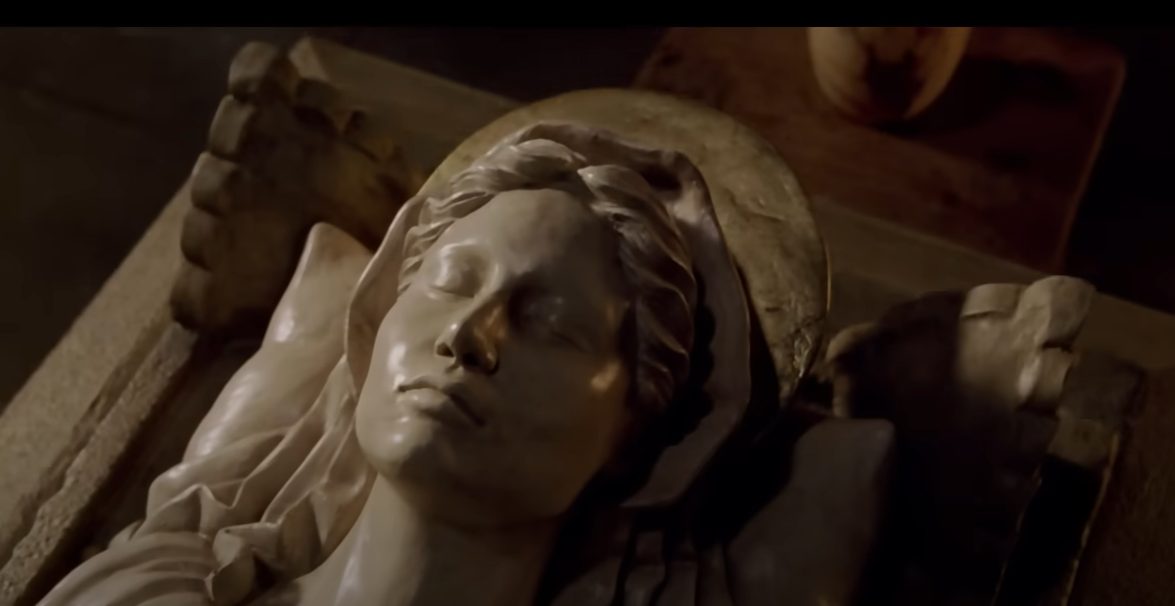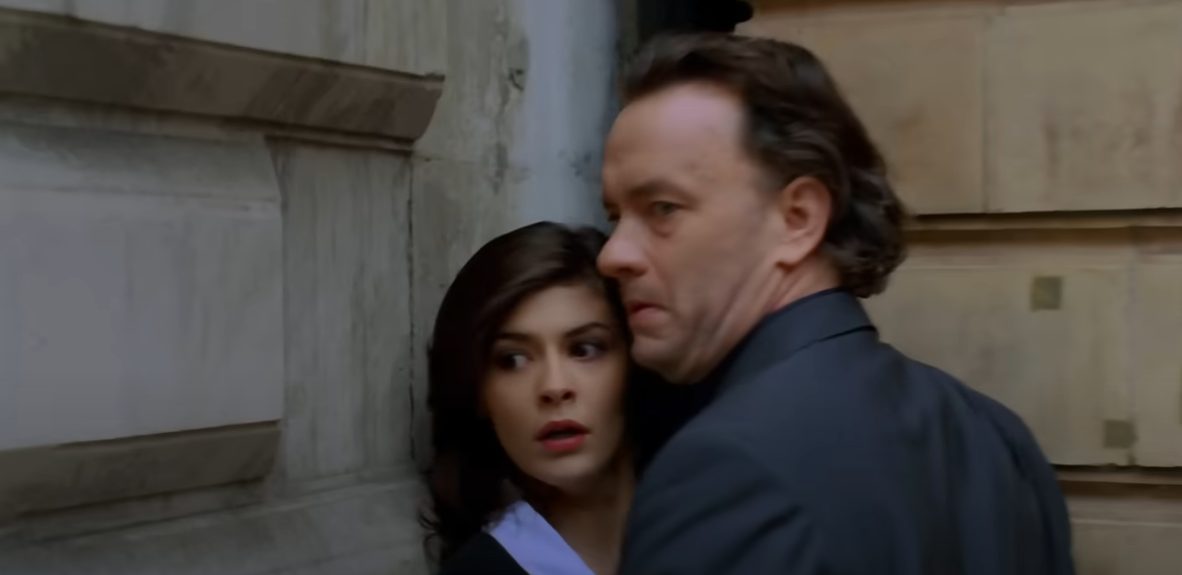The Da Vinci Code movie directed by Ron Howard and based on Dan Brown’s bestselling novel of the same name, is a mystery thriller that combines elements of history, art, religion, and cryptology.

Plot Summary
The story begins with the murder of Jacques Saunière, the curator of the Louvre Museum in Paris. Before dying, Saunière leaves behind a series of cryptic clues. Robert Langdon (played by Tom Hanks), a Harvard symbologist, is summoned to the crime scene by the French police. Sophie Neveu (Audrey Tautou), a cryptologist and Saunière’s estranged granddaughter, soon joins him.

The Holy Grail Mystery:
- Traditionally thought to be the cup used by Christ at the Last Supper, the movie redefines the Grail as a metaphor for Mary Magdalene. According to the narrative, she was Christ’s companion and carried his bloodline.
- Saunière’s clues suggest that the Catholic Church has long suppressed this truth to maintain its authority.
Symbols and Codes:
- The movie revolves around deciphering cryptic messages, anagrams, and hidden meanings in famous works of art like Leonardo da Vinci’s “The Last Supper.”
Conflict Between Religion and Truth:
- The Catholic Church, represented by Opus Dei, is portrayed as going to extreme lengths to keep the truth about the Grail hidden.
Art and History:
- The story uses famous landmarks and works of art, including the Mona Lisa, the Vitruvian Man, and Westminster Abbey, as backdrops for the characters’ journey.

Movie Characters
Robert Langdon (Tom Hanks):
- A brilliant but skeptical symbologist who becomes the reluctant hero of the story. Langdon’s knowledge of symbols and history is crucial to solving the mystery.
Sophie Neveu (Audrey Tautou):
- A cryptologist and Saunière’s granddaughter, Sophie carries a personal connection to the Grail mystery, revealed as the story progresses.
Sir Leigh Teabing (Ian McKellen):
- A Grail enthusiast and historian who aids Langdon and Sophie but later reveals his own hidden agenda.
Silas (Paul Bettany):
- An albino monk and a member of Opus Dei, Silas is manipulated into carrying out murders to protect the Church’s secret.
Bezu Fache (Jean Reno):
- The French police captain initially pursuing Langdon and Sophie under false assumptions.

Key Aspects Explained in The Movie
The Priory of Sion:
- A secret society supposedly tasked with protecting the truth about Mary Magdalene and the bloodline of Christ.
The Role of Leonardo da Vinci:
- Da Vinci is suggested to have been a Grand Master of the Priory of Sion, embedding clues about the Grail in his artwork.
Mary Magdalene’s Identity:
- The movie suggests that she was not only a follower of Christ but also his wife and the mother of his child, making her descendants part of a divine lineage.
Sophie’s True Identity:
- Sophie is revealed to be a direct descendant of Mary Magdalene and Christ, making her the “living Grail.”
Leigh Teabing’s Betrayal:
- Teabing orchestrates much of the chaos in an obsessive quest to expose the Church’s secret.

Ending Explained
Langdon and Sophie uncover the truth about the Grail’s location, realizing it is metaphorically hidden in plain sight. Instead of revealing it to the world, they decide to preserve the mystery, respecting its spiritual significance. The film ends with Langdon piecing together Saunière’s final clue and discovering that Mary Magdalene’s remains are buried beneath the Louvre’s iconic glass pyramid.

Review and Analysis
Faith vs. Knowledge: The film explores the tension between religious dogma and the pursuit of historical truth.
Feminine Divinity: It emphasizes the suppressed role of women in religious history through Mary Magdalene’s portrayal.
Power of Interpretation: Art, symbols, and historical texts are shown as subjective, open to interpretation.
The movie was met with mixed reviews, criticized for its pacing and dense exposition. However, it sparked widespread discussion and controversy for its provocative take on religious history, leading to protests from some religious groups.

The 2006 film “The Da Vinci Code”, directed by Ron Howard and based on Dan Brown’s bestselling novel, received mixed reviews on IMDb. Here’s a summary of the general sentiment expressed in reviews:
Positive Reviews
- Faithful Adaptation
Many viewers praised the movie for staying true to the novel’s main storyline. Fans of the book appreciated the way complex plotlines and historical elements were translated to the screen. - Engaging Mystery
Some reviewers highlighted the compelling narrative, with its intriguing puzzles, hidden symbols, and historical conspiracies. They found the unraveling of secrets entertaining and thought-provoking. - Strong Performances
- Tom Hanks as Robert Langdon and Audrey Tautou as Sophie Neveu were frequently commended for their solid acting.
- Ian McKellen’s portrayal of Sir Leigh Teabing often stood out as a highlight, with viewers applauding his nuanced and charismatic performance.
- Visual Appeal
The film’s production design and cinematography received praise, particularly the use of historic locations in Paris and London, which added authenticity and atmosphere to the story.
Negative Reviews
- Pacing Issues
A common critique was the movie’s slow pace, particularly in the first half. Some viewers felt it dragged and lacked the momentum needed for a thriller. - Complexity of the Plot
Critics noted that the intricate storyline and heavy use of exposition made the movie feel convoluted at times. Those unfamiliar with the novel found it harder to follow. - Characterization
- Some felt the characters lacked depth, with Tom Hanks’ portrayal of Langdon described as too subdued or lacking charisma.
- Audrey Tautou’s Sophie Neveu was also criticized for not having a more dynamic role in the narrative.
- Faith vs. Fiction Controversy
The film stirred controversy for its depiction of religious institutions and historical inaccuracies, leading to polarized opinions. While some viewers found this fascinating, others saw it as offensive or oversensationalized. - Predictability for Book Readers
Fans of the book often commented that the film, while faithful, offered little surprise or innovation for those familiar with the story.
Overall IMDb Sentiment
On IMDb, the film holds a moderate rating of 6.6/10 (as of my last knowledge update). Reviews are often polarized, reflecting how the film’s success depends on the viewer’s familiarity with the book and their interest in historical conspiracies. While some viewers enjoyed the intellectual and visual aspects of the film, others were let down by the pacing and character development.



